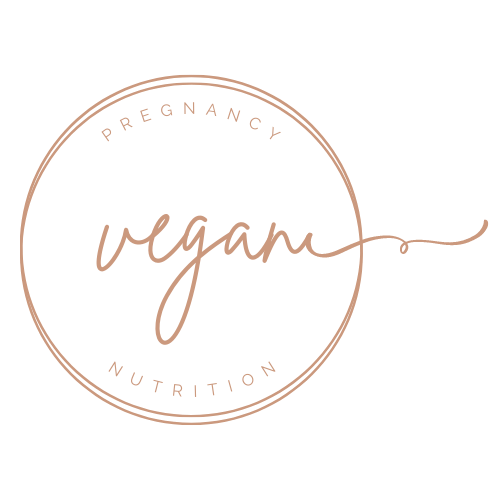Top five foods to help baby grow: for vegan mamas
written by Maya Bach, MPH, RDN
This article was originally written for and appears on Momototos.com
As a vegan mom-to-be, your needs for pregnancy are unique. You may be wondering what you need to eat to support your body and developing baby. You’re not alone!
What you eat and drink matters. If you’re not exactly sure where to start, here are my top five favorite plant-based, nutrient-packed foods to recommend for all vegan mamas.
Soy milk supports increased protein needs
Perfect for your favorite morning cup of coffee and packed with nutrients, soy milk is the ideal addition to your daily routine. One cup of soy milk gives your body ~13% of the Choline needed during pregnancy.
While neither a vitamin nor a mineral, Choline is an essential nutrient that plays a crucial role in your baby’s early brain development. Not into soy? Check out pea or flax milk, which are both rich in protein, calcium, and other essential nutrients. Because they’re low in protein and calories, almond and coconut milk, unless fortified with protein, are less nutrient-dense options for vegan mamas to incorporate consistently. You can also consider adding in choline-rich foods like chickpeas, quinoa, and sunflower seeds to help you meet your needs.
Lentils are safe and nutritious for vegan mamas
Tiny but mighty, lentils are easy ways to bump up your nutrition for you and your baby. Rich in iron, fiber, and protein, lentils are well-balanced and versatile.
Just one cup of lentils gives you almost 20% of your daily iron for pregnancy. As a vegan, your iron needs are higher during pregnancy than those not following a vegan diet. Getting adequate iron helps maintain your energy levels. It delivers oxygen to your growing baby, thereby supporting her development.
One tip to boost the absorption of iron from lentils?
Add a squeeze of lemon! When you add vitamin C, your body can better absorb iron from plant-based sources. And if you haven’t already, try lentil pasta or lentil rice for an iron-rich twist on classic dishes.
Fortified cereal
You might be wondering why cereal makes this top five list of all things. Here’s why: cereal is a quick and simple way to supplement your plant-based diet with essential nutrients like folate, zinc, and vitamin D. It’s also widely available, shelf-stable, and requires zero prep!
The best cereals for pregnancy?
Look for bran cereals with little added sugar and include nutrients like those listed above on the nutrition facts label. It’s worth noting that vitamin D in cereals may be from lanolin, a waxy substance from sheep’s wool, making that cereal not vegan. Check the label on the box for the “vegan” label. If you’re looking for a less traditional way to enjoy cereal, consider adding a few tablespoons of cereal to make a simple muffin recipe.
Nutritional yeast to boost protein
Craving something savory? Skip the salt and add nutritional yeast instead! Nutritional yeast is a powerhouse meal-enhancer loaded with B12. B12 helps your body function properly by preventing fatigue and maintaining a healthy nervous system. It also is essential for your developing baby to support healthy brain development.
Unlike other vitamins, you cannot get B12 in naturally occurring plant-based foods. Your needs increase from 2.4 to 2.6 micrograms (mcg) per day when you’re expecting. Supplementation is a must and fortified foods, like nutritional yeast, give you that extra boost for pregnancy.
If you haven’t used it before, here is an easy way to get started:
Add popcorn! Sprinkle onto popcorn with spices of your choice (smoked paprika is a personal favorite) and enjoy!
Flaxseeds for pregnancy
Versatile and crunchy, incorporating flaxseeds into your prenatal diet is an excellent way to boost your intake of omega-3 fatty acids. Omega-3 fatty acids include heart-healthy ALA, DHA, and EPA. Studies show that DHA is crucial in helping your baby’s brain develop. Flaxseeds are high in ALA, which your body converts to DHA. While conversion is relatively low, adding flaxseeds to the meals you’re already eating can bump up your DHA intake across the day.
Should you buy whole or ground flaxseeds?
To maximize your absorption of DHA, and other nutrients, from flaxseeds, enjoy them ground. If you’re experiencing pregnancy constipation, consider buying whole seeds to help you get things moving. Meal ideas include adding flaxseeds to tofu scrambles, baked goods, and avocado toast. Pro tip: To prevent the seeds from spoiling, refrigerate them in a sealed container.
Bottom line:
While these five foods offer you a wide variety of nutrients your body needs during pregnancy, it’s important to remember that there is no “perfect” vegan pregnancy diet. Your taste preferences, nutrient needs, and food choices are all unique. And while plant-based foods should form the basis of a balanced prenatal diet, you must supplement with nutrients that are not naturally occurring, like B12. As a vegan dietitian, I always recommend taking a prenatal and discussing your individual needs with a licensed healthcare professional.







